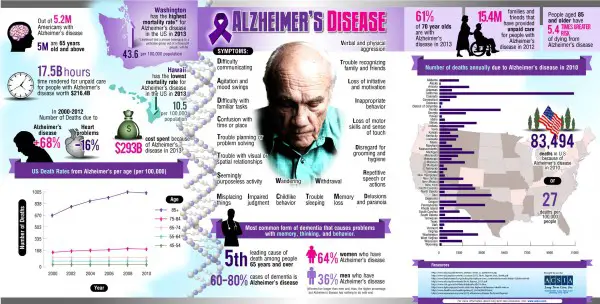Vitamin D is an important vitamin whose deficiency causes dementia or Alzheimer's disease, most commonly in the elderly. This is the claim of scientists who conducted a large AAN, published in the Neurology Journal.
The lead researcher of the University of Exeter Medical School, David Llewellyn, in a news release, says that the huge connection between Vitamin D and dementia or Alzheimer's disease surprised them.

Vitamin D and Alzheimer's disease
During that survey, it took into account data from several years back where 1,658 Americans aged 65 and older participated in the Cardiovascular Health Study at the National Heart, Blood, and Lung Institute.
Leave a Comment
